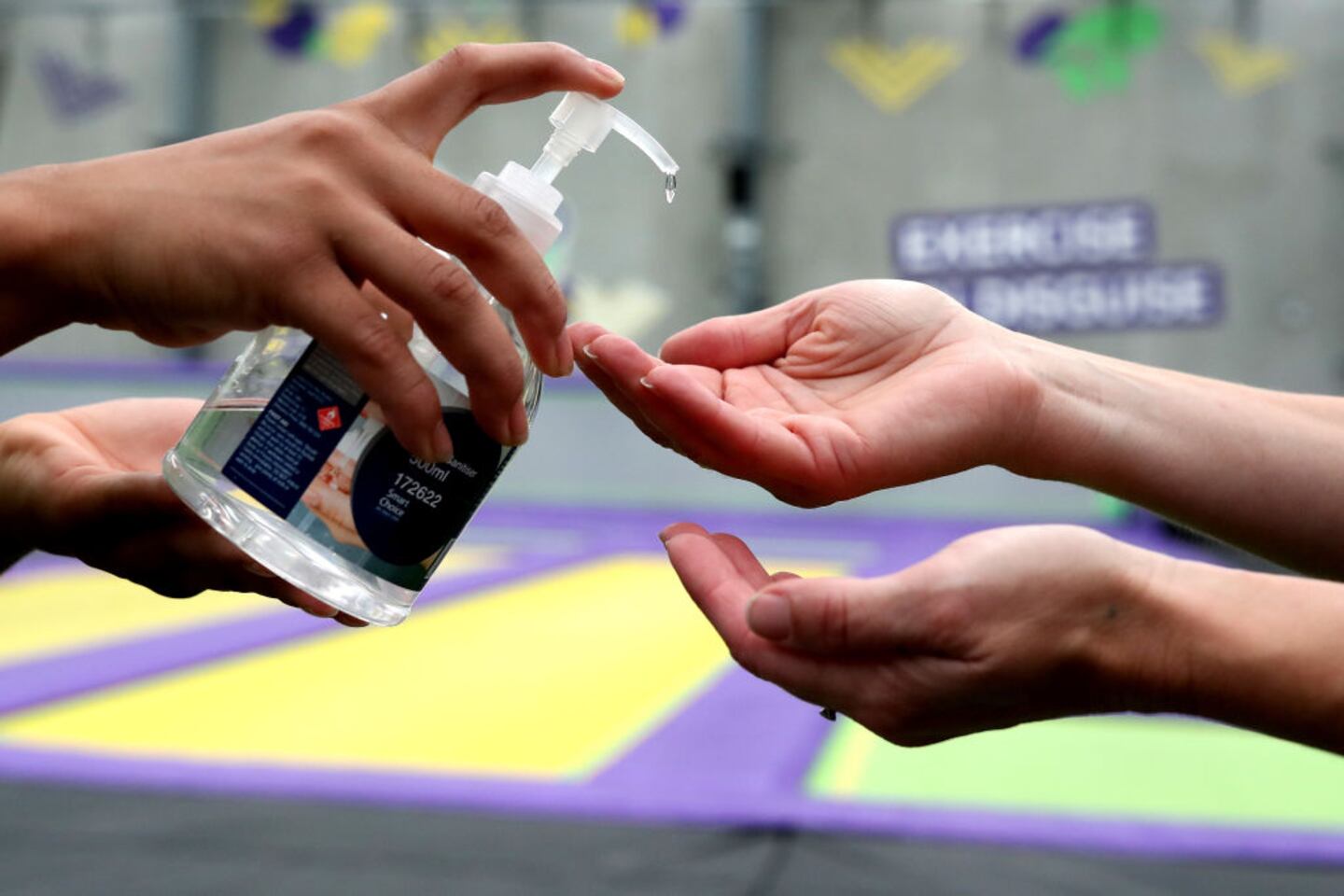The Centers for Disease Control and Prevention has issued new guidance about the transmission of COVID-19, saying that the virus “does not spread easily” off surfaces as it was first believed.
The new CDC guidelines address the spread of the novel coronavirus, which the agency had said was easily spread between people when someone touched a hard surface that had the virus on it.
Researchers now say the virus is primarily spread when a person who has COVID-19 coughs, sneezes or even just talks near someone else, causing droplets to land in the other person’s mouth or nose.
"COVID-19 is a new disease and we are still learning about how it spreads," the guidelines say. "It may be possible for COVID-19 to spread in other ways, but these are not thought to be the main ways the virus spreads."
The updated guidelines include a section on how “the virus does not spread easily in other ways.”
According to the CDC, ways the virus doesn't spread include:
From touching surfaces or objects. It may be possible that a person can get COVID-19 by touching a surface or object that has the virus on it and then touching their own mouth, nose or possibly their eyes. This is not thought to be the main way the virus spreads, but we are still learning more about this virus.
From animals to people. At this time, the risk of COVID-19 spreading from animals to people is considered to be low. Learn about COVID-19 and pets and other animals.
From people to animals. It appears that the virus that causes COVID-19 can spread from people to animals in some situations. The CDC is aware of a small number of pets worldwide, including cats and dogs, reported being infected with the virus that causes COVID-19, mostly after close contact with people with COVID-19. Learn what you should do if you have pets.
According to Dr. John Whyte, chief medical officer for the health care website WebMD, the CDC's more clear guidance should ease fears over how you can catch the virus.
“Many people were concerned that by simply touching an object they may get coronavirus, and that’s simply not the case. Even when a virus may stay on a surface, it doesn’t mean that it’s actually infectious,” Whyte told Fox News.
In March, the CDC had warned that it “may be possible” to pass on the virus from one person to another through a contaminated surface.
The CDC guidance says hand-washing and avoiding touching your eyes or nose should be the standard to avoid catching the virus.
The U.S. Food and Drug Administration released information in April that said there was no evidence that the virus spreads through food or what food is wrapped in. Nor is there any reason, the FDA said, to wipe down groceries before putting them up at home.
Cox Media Group








